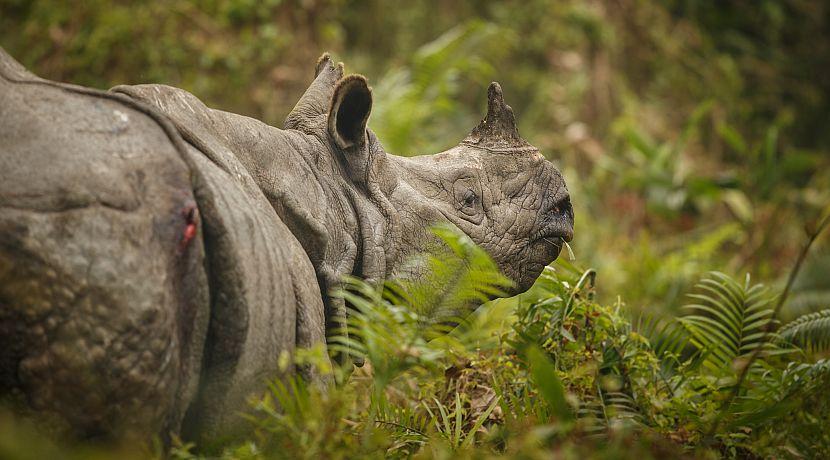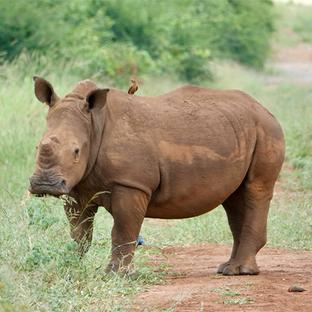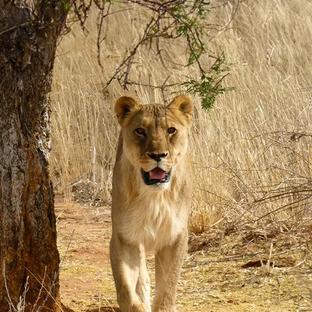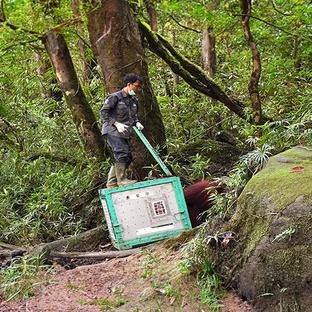Another month has passed, so we’re back with a round-up of animal news stories that you may have missed. From uplifting tales to heartbreaking tragedies, February has been full of reports from the animal kingdom. Keep reading on to catch up on five of the most interesting stories from around the world.
San Francisco’s New Puppy Law
To kick things off, we wanted to share a story that made us smile. San Francisco has long since had a complicated relationship with its resident animals: a quick Google search can pull up countless results of people looking for ‘the best puppy mills in the bay area,’ yet it’s hard to walk more than a few metres down the city’s streets without stumbling across a stray dog. With hundreds of homeless dog either being put into shelters or left to survive by eating scraps found on the street, the presence of puppy mills in San Francisco is nothing short of questionable – which is why a brand-new law has left so many animal-lovers feeling relieved.
Following in a similar vein to locations such as Los Angeles, Chicago and Boston, the city of San Francisco has voted to ban the sale of non-rescue cats and dogs at pet shops. The ban is designed to extinguish inhumane puppy breeding operations throughout the city which, in turn, gives a better chance of adoption to the animals that deserve their forever home. In addition to this, the number of animals put to sleep (due to overcrowding at shelters) is expected to fall dramatically.
The move has been described as ‘progressive,’ and certainly gives a warm fuzzy feeling to us guys here in The Great Projects office!
Bizarre ‘Likes And Dislikes’ To Help Animals Find Their Forever Home
Next up is another story of animal adoption…with a twist. While the previous story is part of a bigger, city-wide change (and something that we hope will inspire others around the world), the methods used in this next story are more than a little unorthodox. Still, whatever works!
It’s hard not to giggle at comedian Obvious Plant’s unusual efforts to help his local shelter out. Tired of walking by the sad faces of homeless kitties every day, prankster ‘OP’ (as we’ll refer to him from now on) decided that enough was enough. In a blog post written on Bored Panda, OP describes how he ‘stealthily placed these cat biography cards on (the shelther’s) front window. All of these cats are real and need a home!’
And he is right. Every year, millions of cats are left without a place to live. Whether left behind by owners, or bred of part of a money-making scheme, the amount of cats in shelters continues to increase, and something must be done. OP’s unusual tactic of anthropomorphising the animals by giving them ‘likes and dislikes,’ aims to draw attention to the shelter and, indeed, the kittens that so desperately want out of there. The idea definitely caught the attention of the internet and of publications around the world, with commenters clearly loving the injection of ‘cattitude’ given to the animals. Here’s hoping that OP’s plot works, and that these kitties find themselves a home soon!
The Park That Shoots Poachers To Protect Its Animals
Earlier in the month, the BBC ran a report on a somewhat unconventional national park. Located in Assam, India, the Kaziranga National Park is home to two-thirds of the world’s population of Indian one-horned rhinoceroses. More than 2400 of the rhinos roam here (alongside tigers, leopards, Asiatic water buffalo and other such endangered animals); its conservation efforts earning not only the highest of accolades, but the permission to use maximum protection, too.
It’s the extent of the park’s protection that has acquired considerable media attention, as well as a sizable dose of controversy. While many of us would agree that protection of animals is paramount, Kaziranga National Park takes this belief to an extreme: the rangers at this location are willing to kill poachers to protect their wildlife.
Such a severe threat of danger would surely keep poachers at bay, one might expect, yet rangers at the park claim that their protection is still absolutely necessary. The life of an Indian one-horned rhinoceros is a perilous one, since their horns are incredibly lucrative for poachers: in some countries, this species’ horn is thought to be worth more than gold, and it is even believed to cure everything from cancer to erectile dysfunction. Despite the fact that the medicinal value of these horns has never been proven, poachers are willing to risk anything to obtain them…and in the case of Kaziranga, they are literally gambling with their lives.
But how many poachers have actually been killed at Kaziranga? And is this the true aim of the park? In the BBC’s interview, the park rangers were blunt in describing their instructions upon spotting a hunter. ‘Whenever you see the poachers or hunters, we should start our guns and hunt them.’ When pressed further on their aim, they explained: ‘Fully ordered to shoot them. Whenever you see the poachers or any people during night-time, we are ordered to shoot them.’ Consequences for killings are unlikely.
The instructions given to rangers (to shoot, more or less blindly at anybody seen entering the park) do, at times, mean that innocents are caught in the crossfire. In an attempt to protect the endangered animals of Kaziranga, rangers have been known to shoot at villagers and tribes people. And while the main goal is to scare off poachers, there was a time when rangers at the park where killing on average two people every month (this period falling around 2015/2016.) Reports on Kaziranga are always fascinating to read, with counter-arguments being emotional and considered. Check out the full BBC report by clicking here.
US Government Vote Allows Americans To Shoot Hibernating Bears
Despite a huge step forward for man’s best friend (see the first story in today’s blog), the US government has tragically decided to overturn a ban on hunting tactics, which previously protected animals in some of America’s wildlife refuges. In Alaska, the overturning of this ban permits hunters to enter the dens of vulnerable, hibernating bears, only to kill them. Another ban placed by the US Fish And Wildlife service has also been overturned, allowing hunters to lure animals with food and shoot them at a point-blank range.
The overturning of these bans are oddly inexplicable – a 2016 vote showed that most people were against the practices mentioned above, and even those in favour of hunting believe that these methods are beyond inhumane. As a result of the ban being lifted, there are now concerns for species populations in the area. Wolves are also at risk of being killed in the region, unless measures are taken to block yet another unfathomable overturning. People in America are being asked to contact their senators in a bid against these resolutions – if you are a US citizen, click here to find out more.
And Finally, A Story You Won't Bee-lieve (sorry...)
While bees are often considered to be something of an 'unthinking machine' (biologist Clint Perry's words, not our own!), scientists have recently put the insects to the test and have discovered something really quite unusual...bees know how to play football! Well, sort of.
Researchers gave a group of bees just one task: to move a ball (about half their size) to a designated goal area. The idea behind this was to task the bees with something they would most likely never encounter in nature. Not only did the bees succeed at this challenge - earning them a sugary treat - but they astonished researchers by figuring out how to meet their new goal in several different ways.
Some bees succeeded at getting their ball into the goal with no demonstration at all, or by first watching the ball move on its own. But the ones that watched other bees successfully complete the game learned to play more quickly and easily. Most impressively, the insects didn't simply copy each other - they watched their companions do it, then figured out on their own how to accomplish the task even more efficiently using their own techniques.
The results show that bees can master complex, social behaviors without any prior experience, and the researchers hope that the impressive feat carried out by the insects will earn more respect from human beings, inspiring us top do more to aid their survival. Perry says: 'We often put ourselves atop a hierarchy, where we're smart and we have large brains, and anything far removed from us physically or morphologically, especially animals with small brains, must be not smart. Understanding that bees and different insects have more complex cognitive abilities can allow us to appreciate them more. And it might help our efforts to manage living with them a little better.'
What did you think of today's stories? And which other reports from the animal kingdom have caught your attention this month? We'd love to hear about them!


















